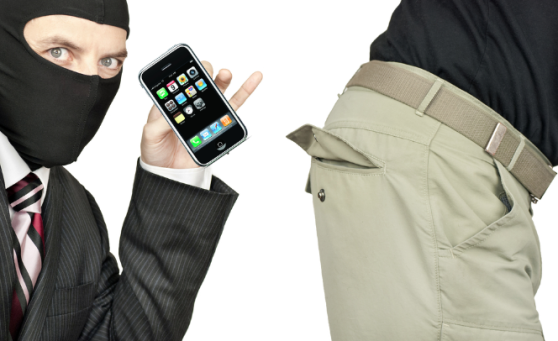
Since phones are both small and valuable, they tend to be a hot item for many thieves, but some new anti-theft technologies may help deter phone burglary.
Last year, in the US alone, lost and stolen phones cost consumers over $30 billion. Many initiatives have been discussed to abate this expense, such as fingerprint scanners and even a proposed national cell phone kill switch, but it’s so easy to steal a cell phone. There has yet to be a foolproof method, but there are always more innovative new ways to stop a would-be thief emerging.
Researchers at Georgia Tech have been testing brand new system for Android called LatentGesture that monitors the way you use your cell phone–specifically the way you interact with the screen–and learns to watch for your unique behavior. It then uses your behavior to monitor your device for anyone that doesn’t behave like you, and locks them out.
Everyone has a unique pattern with the way they interact–touch, tap, and swipe–at their touch screens. The way we interact with our technology can be just as unique as our fingerprint or retinal scan.
The beauty of this system is that even if someone manages to guess a PIN code or password to access a stolen phone, they are still constantly being scrutinized by the software and will likely end up getting locked out anyway if they shouldn’t be poking around. The software was found to be 98% accurate on phones and 97% accurate on tablets. Considering Apple’s Touch ID only works 90% of the time for some users, this could be a much more reliable solution.
Behavioral security is also inherently stronger than any fixed or static security methods such as biometric scanners for fingerprints or irises, because fingerprints and irises are static. They can be stolen and faked. The problem when someone steals your fingerprints is that they are permanently attached to your body and cannot be changed.
Behaviors are extremely difficult to steal and even more difficult to mimic. Accurately observing the way someone interacts with their phone for a long enough period of time is extremely difficult. It’s not specified how detailed of a sample is collected by LatentGesture, but there are so many different and unique ways to interact with your touch screen from the distance and arc of a swipe the the staccato of a tap, “stealing” someone’s behavior is far more difficult than stealing their fingerprint, especially for a snatch and grab.
Phones are easy to steal, and the technology necessary to crack security is always hot on the heels of new security developments, but hopefully some new anti-theft initiatives–such as LatentGesture–will go a long way towards curbing the rampant phone theft.
Source: Engadget
Be social! Follow Walyou on Facebook and Twitter
Read more on Walyou, The Paradox of the Wearable, Google Might Become Your New Favorite Carrier



